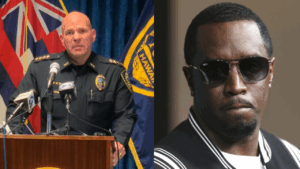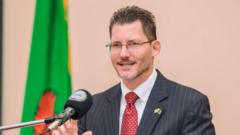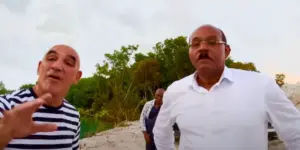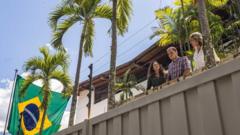Tensions escalate between Zambia and the US following claims of systematic theft of health aid, prompting Zambia's foreign minister to warn diplomats against addressing government issues via the media.
Diplomatic Tensions Rise in Zambia as Aid Theft Sparks Warning to Envoys
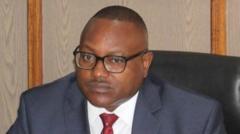
Diplomatic Tensions Rise in Zambia as Aid Theft Sparks Warning to Envoys
Zambia's foreign minister cautions diplomats against public interference after US ambassador reveals drug donations are being systematically stolen.
Zambia's foreign minister, Mulambo Haimbe, has issued a stern warning to foreign diplomats, urging them to refrain from publicly addressing matters related to the country's governance. This statement comes on the heels of US Ambassador Michael Gonzales publicly voicing concerns over what he described as the "systematic theft" of essential medications donated to Zambia. Haimbe highlighted the growing trend among diplomats to bypass conventional channels of communication, warning that such actions could jeopardize diplomatic relationships.
In a press conference, Gonzales announced the drastic decision by the US government to withdraw $50 million in health aid following what he called systemic corruption affecting life-saving medicines. Gonzales indicated that numerous discussions with Zambian officials had yielded no substantial progress, prompting his move to take the issue public. In his remarks, Haimbe firmly stated that addressing government issues through media channels constituted interference and was contrary to established diplomatic etiquette. He reiterated Zambia's willingness to engage in proper diplomatic dialogue to resolve concerns.
The matter escalated as Zambia's Home Affairs Minister Jacob Mwiimbu reported that a forensic audit into the alleged misappropriation of aid had been completed and was processed by security forces for further investigation. A nationwide operation has already led to the arrest of approximately 75 individuals involved in the scandal, with more than 400 health facilities scrutinized. “There will be no sacred cows in this pursuit,” Mwiimbu emphasized.
Gonzales revealed that a US inspection conducted at over 2,000 local pharmacies last year uncovered widespread selling of US-donated medical supplies. Despite the allegations, Zambia's Health Minister Elijah Muchima reassured citizens that the theft issue predated the current administration, which began in 2021. He also pointed out that several officials were dismissed over the identified thefts and that a new digital tracking system for medicine inventory was being implemented.
The announced US aid cut, which is set to take effect next year, is expected to directly impact crucial drugs for treating malaria, HIV, and tuberculosis. However, Muchima assured the public that adequate supplies were available, thus mitigating any immediate risk of drug shortages. The recent US decision aligns with the broader context of foreign aid that has been affected in recent months, including a significant assistance freeze initiated under former President Donald Trump.
As it stands, the US remains a pivotal supporter of Zambia's public health initiatives, contributing roughly one-third of the nation's health funding, prompting the ongoing urgency of resolving these tensions.








